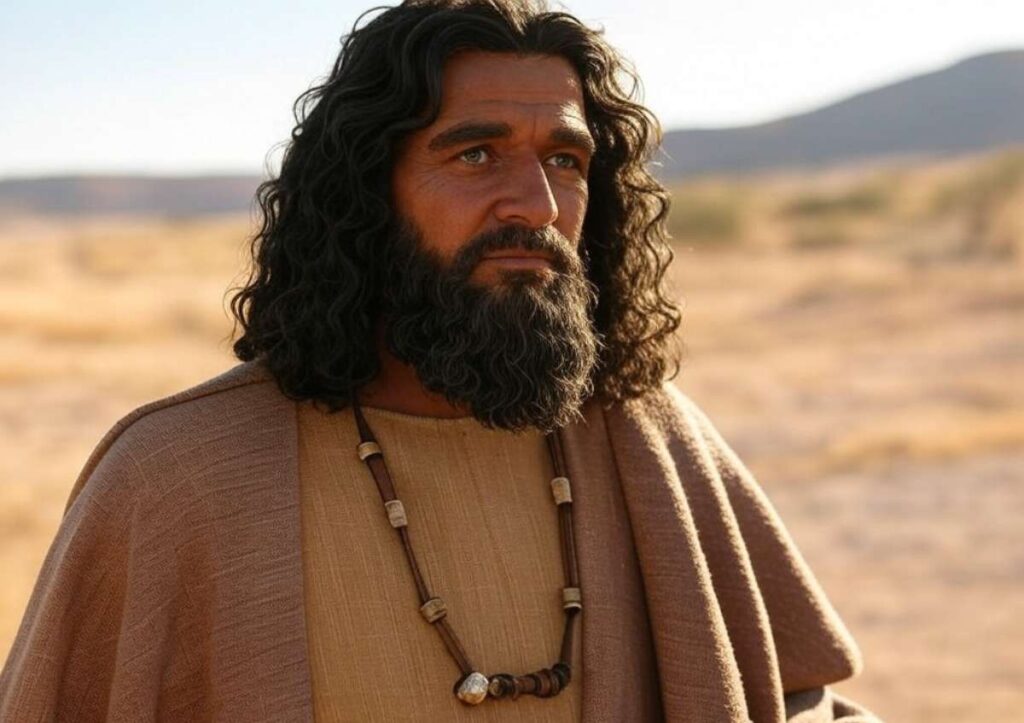Who Is Abraham in the Bible?
Abraham, originally named Abram, is known as the “father of faith” and the patriarch of the Israelite nation. His story is found in Genesis 11–25, and his legacy extends through the entire Bible. God made a covenant with him that would shape the destiny of nations and ultimately lead to the coming of Jesus Christ.

Biblical Background
➤ Early Life and Calling (Genesis 11:27–12:9)
- Abraham was born in Ur of the Chaldeans, a pagan city in Mesopotamia.
- God called him to leave his country, family, and father’s house and go to a land He would show him.
- Abraham obeyed by faith, not knowing where he was going (Hebrews 11:8).
- God made a powerful promise: “I will make you into a great nation… and all peoples on earth will be blessed through you.” (Genesis 12:2–3)
Journey of Faith
➤ The Covenant with God (Genesis 15, 17)
- God promised Abraham:
- Land (Canaan)
- Descendants as numerous as the stars
- A lasting relationship—the Abrahamic Covenant
- Abraham believed God, and “it was credited to him as righteousness” (Genesis 15:6).
➤ Name Change
- God changed Abram (“exalted father”) to Abraham (“father of many nations”).
- His wife Sarai was renamed Sarah (“princess”).
Family and the Promise
➤ The Waiting Period
- Abraham and Sarah waited 25 years for the promised son, Isaac.
- In impatience, Sarah gave her maidservant Hagar to Abraham, and she bore Ishmael.
- Though Ishmael became a great nation, Isaac was the child of God’s promise.
➤ The Test of Faith (Genesis 22)
- God commanded Abraham to sacrifice Isaac as a test of faith.
- Abraham obeyed, trusting God could even raise Isaac from the dead (Hebrews 11:17–19).
- At the last moment, God provided a ram as a substitute—a powerful foreshadowing of Jesus.
Theological Significance
1. Father of Many Nations
- Abraham is the biological father of the Israelites (through Isaac) and many Arab nations (through Ishmael).
- He is the spiritual father of all who live by faith (Romans 4:11–17).
2. Justification by Faith
- Abraham is the biblical example of salvation by faith, not works (Romans 4, Galatians 3).
- Paul uses Abraham to explain that righteousness comes through believing God, not by law-keeping.
3. A Foreshadowing of Christ
- The near-sacrifice of Isaac mirrors the sacrifice of Jesus—the beloved Son, carrying wood, laid on the altar.
Lessons from Abraham’s Life
- Faith requires obedience – Abraham left everything familiar based on a promise.
- Delays are not denials – He waited decades for Isaac, learning to trust God’s timing.
- God uses imperfect people – Abraham lied about his wife twice but was still called a friend of God.
- God keeps His promises – Even when impossible, God brought life to Sarah’s barren womb.
- Faith is tested – Abraham’s greatest test became his greatest testimony.
Abraham’s Legacy
- Isaac (son of promise)
- Jacob (Israel) – grandson, whose 12 sons became the 12 tribes of Israel
- Mentioned in faith heroes (Hebrews 11), called “friend of God” (James 2:23), and revered in Judaism, Christianity, and Islam.
- Through Abraham’s lineage came Jesus Christ, the ultimate fulfillment of God’s blessing to the world.
Summary
Abraham is the father of faith, a man who walked with God, trusted Him through uncertainty, and received promises that shaped human history. His life shows us what it means to believe when we don’t see, to follow even when we don’t fully understand, and to trust that God is faithful to fulfill every word He has spoken.